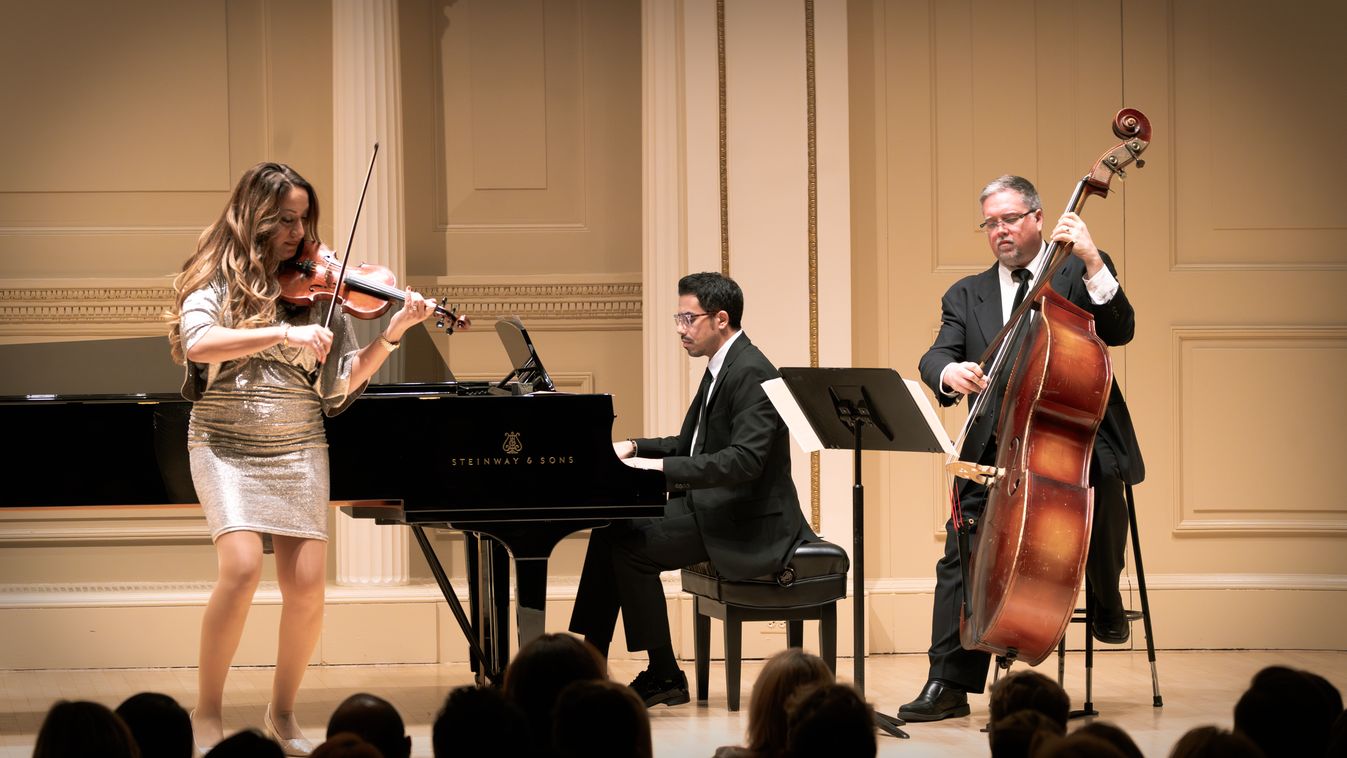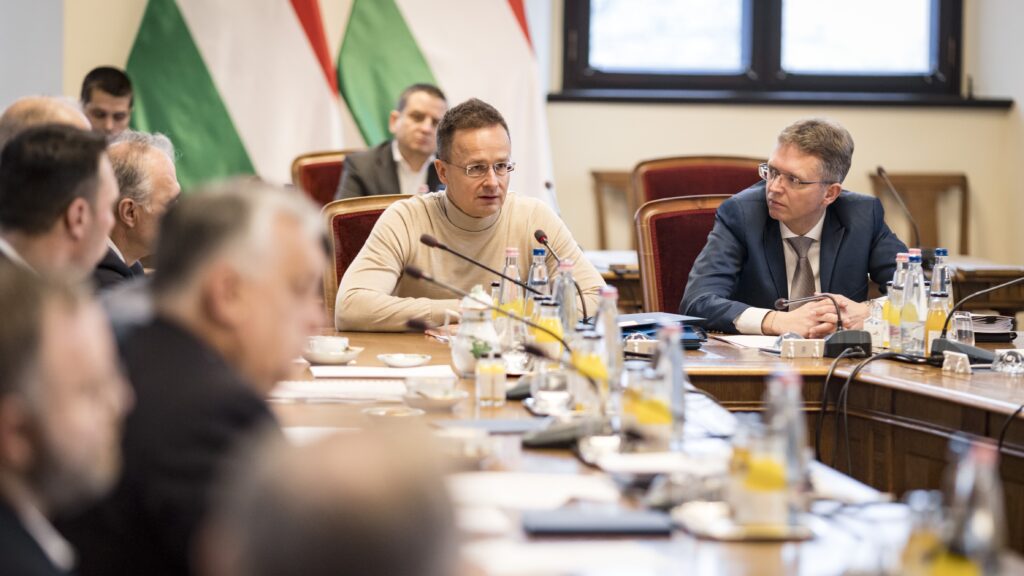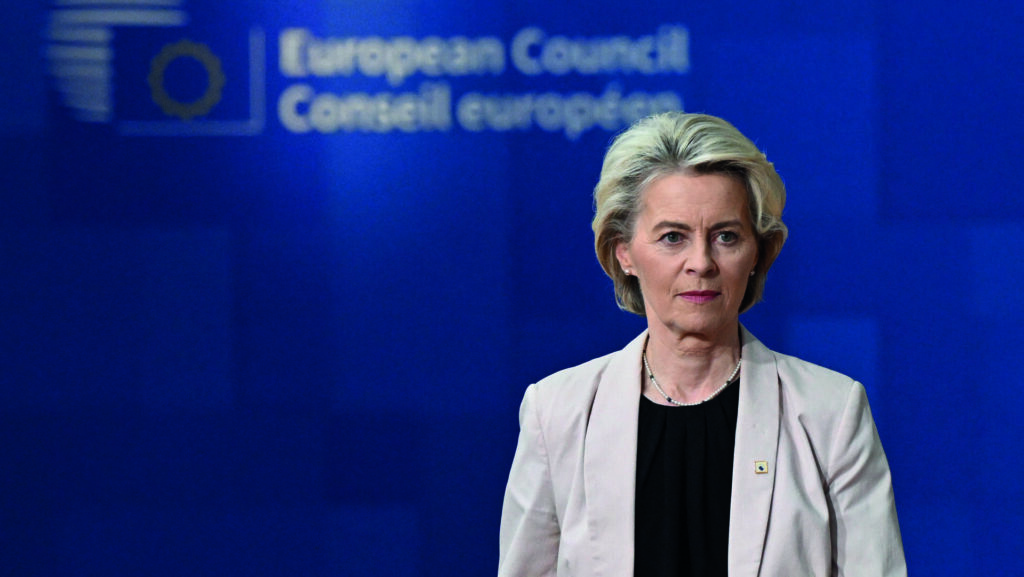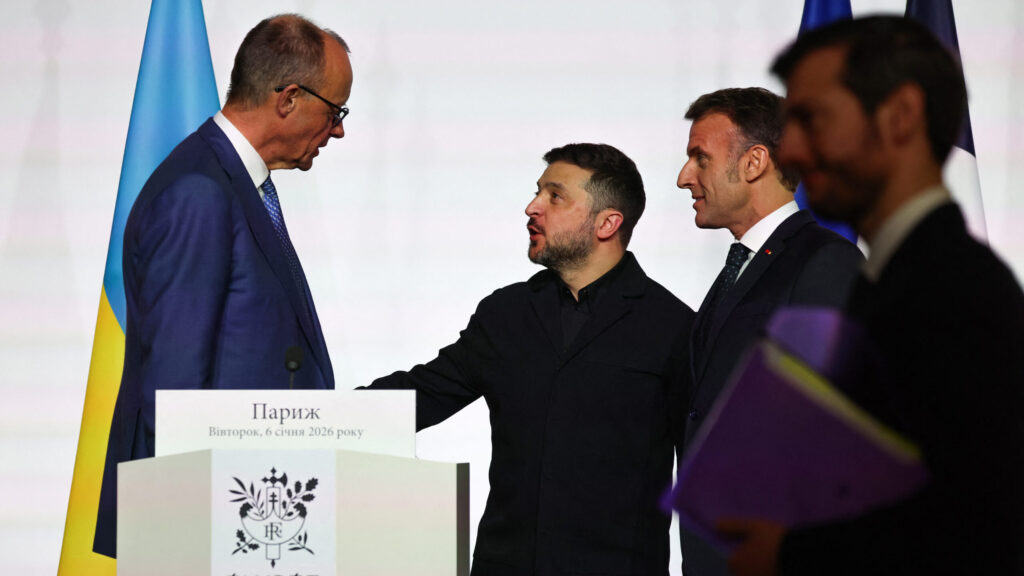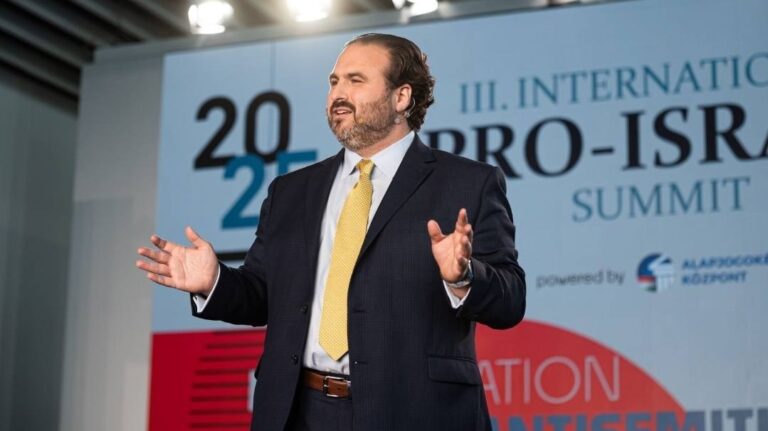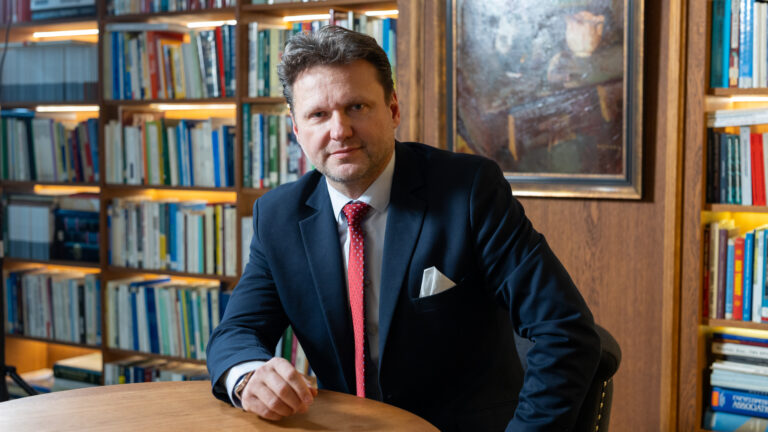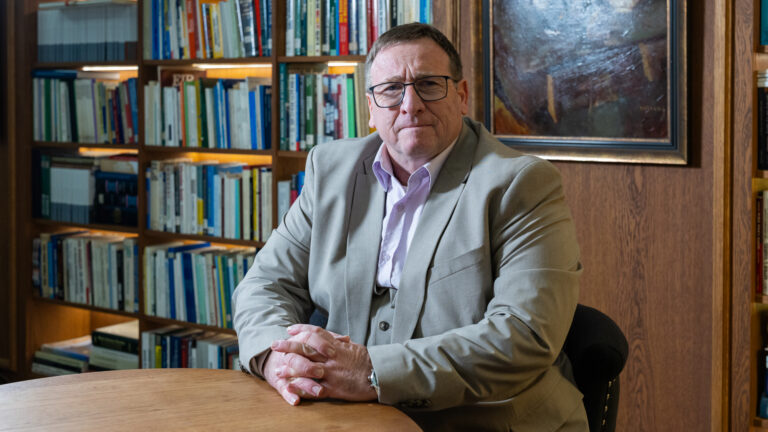This is an abridged version of the original interview published in Magyar Nemzet on 27 April 2024 and online on 25 April 2024.
Bernadett Nyári was born into a musical family—her grandfather, József Suha B., was a renowned violinist and composer. She started playing the violin at the age of six, performed with Edvin Marton at 15, and played alongside Zoltán Mága at 17. She had launched her solo career by the time she was 20, and by the time she turned 30, she had already performed in 90 countries. Since 2020, she has been living in the United States with her Croatian-born husband and their little son, yet she considers all three countries her home. In autumn 2023, she honored the 110th anniversary of her grandfather’s birth by performing his compositions at Carnegie Hall in New York, fulfilling his long-lost dream.
***
Your family is full of musicians, so I guess it was never a question that you’d be a musician too?
It wasn’t a question for my family, but it was for me. They never asked whether I wanted to play music, only which instrument I wanted to play. I chose the violin, but at five or six, I had no idea why. At that time, I didn’t know much about my grandfather. When I started playing, I quickly realized that practice was required, and I didn’t like it at all. I never really practiced, except for ten minutes before my two weekly violin lessons. I even told my teacher and parents that I’d never pursue a musical career and was only playing for their sake, and that I’d quit soon. My brother, who is ten years older and now a pianist at the Hungarian State Opera, was already practicing six to eight hours a day back then. Compared to him, my lack of dedication was even more obvious. The turning point came when I was 13. The choir from my music school invited me to join them on a tour to Italy and perform a violin piece. It was a huge success: 300–400 enthusiastic Italians gave me a standing ovation. That’s when I decided I wanted to be a violinist. When I returned home and told my mother and teacher, they told me to forget about it. The entrance exam for the Bartók Béla Conservatory in Budapest was only ten months away, and they said it was impossible to make up for eight years of missed practice in such a short time. I didn’t listen. I asked my teacher for the exam repertoire, and once I got it, I started practicing, though still only half as much as my brother did. I was accepted. That was the moment my fate was sealed—from then on, I knew what I wanted.
Your grandfather passed away in 1974 at age 60; you never met him. Your Carnegie Hall concert last year was dedicated to his memory. Why?
I grew up listening to my grandmother, who turns 105 this year, constantly talking about him. She always told me what an exceptional musician he was—a genius, really—who was oppressed by the communist regime because of his faith. His dream of playing in America was never fulfilled. His brothers and sons were also outstanding musicians; they always told stories about him. Even when I walked the streets of Budapest, elderly musicians would bring him up in conversation. I felt as if I had known him, and when I heard his story, I made a promise to myself: ‘If God ever allows me to reach America, I will play my grandfather’s music.’ Of course, my ultimate goal is to make his music famous in America, but playing his compositions at Carnegie Hall, essentially as a world premiere, was already a huge milestone. That’s why I named the concert Untold Melodies, and that’s why his portrait was on the concert poster. And ultimately, that’s why I moved to America.
What was his story? Why did he want to go to America so badly?
From family stories, I pieced together that he traveled all over the world, touring extensively, but his biggest dream was always America—I don’t know exactly why. When his American tour was finally arranged, he went to the union office to pick up his passport. There, he refused to address the official as ‘Comrade’. Instead, as a deeply religious man, he looked up at the sky and said: ‘I recognize only one Lord—the one above.’ As a result, they confiscated his passport, canceled all his international tours and radio recordings, and from then on, he was blacklisted. He was no longer allowed to perform anywhere except small bars and pubs. That’s probably why he died so young, from cancer. Almost nothing was preserved of his music; I have only one cassette tape of him, which I have digitized. It was secretly recorded in Switzerland, with a tape recorder hidden under a cimbalom. You can barely hear the violin on this nearly 60-year-old recording, yet even so, it’s clear what an incredible violinist he was. Compared to him, I don’t even know how to play the violin. Since it deeply pained my grandmother to see how he was ignored and forgotten, I wanted to fulfill his dream while she was still alive.
Did your grandmother see your concert in Carnegie Hall?
No one from my family in Hungary saw it live—they don’t like to travel. My mother later regretted this decision. She always shows my grandmother videos of my performances. For the past ten years, after every concert, my grandmother has asked: ‘My dear, how was it?’ And when I answered: ‘I think it went well—the audience gave a standing ovation’, she’d always say: ‘Of course it was good! Your grandfather was there with you.’ Just saying this now makes me tear up. I never met my grandfather, but he is always with me. The night before the concert, as we walked past Carnegie Hall, I saw the red carpet laid out for Lang Lang, the world’s most famous pianist. Then I saw my own poster on the building—and I burst into tears. On the left, my grandfather’s black-and-white portrait, standing before Budapest. On the right, my color portrait, standing before New York. The past and the present. At that moment, I felt like he had finally made it. His face remained on stage throughout the concert.
‘If God ever allows me to reach America, I will play my grandfather’s music’
After the concert, I called my mother. She told me she had struggled to sleep and had dreamed of her father, for the first time since he passed away. In the dream, he held her hand and gently stroked her face. She woke up in tears, and when she told me, I cried too. My grandmother’s mind is no longer as clear, but she still has lucid moments. She always recognizes me in videos, but I don’t know what she truly thinks. When she saw this concert, she told my mother: ‘Oh, how nice! This is your father’s piece, isn’t it?’ So, she was still aware of that, but I don’t think she understood the details, like New York and Carnegie Hall. Still, I really wanted all of this to happen while she was still alive.
How did you manage to get into Carnegie Hall?
Since I had already performed in 90 countries, people often asked me where I still dreamed of playing. Because of my grandfather, my answer was always the same: Carnegie Hall. One day, I thought to myself: What am I actually doing to make this happen? Nothing. I was just waiting for Carnegie Hall to call me, but that was never going to happen. So, I started working on it. I spoke to a friend who had already played there, gathered all the information, and then sent them an email. They replied! They asked me 1000 questions—who I was, when and what I wanted to play, who I wanted to perform with, etc. I answered everything and also told them I’d like to perform in the fall of 2023. At the end of December 2022, I received another email from them: ‘It looks like we will have a date for you soon.’ I thanked them, but I assumed it would be years away, so I didn’t even mention to them that I was about to give birth.
Because in the meantime, you became pregnant…
Yes, and on 21 December 2022, my son was born. It was the first New Year’s Eve of my adult life when I wasn’t playing the violin in front of an audience. I wasn’t thinking about music at all, but two weeks later, I received another email from Carnegie Hall—with an October date. At that point, I really couldn’t believe it. I looked at my husband and said: ‘I don’t think I can do this.’ We had no family support, and I didn’t want to play pieces I had already performed thousands of times—I wanted to play music I had never played before. My grandfather’s compositions are not easy—how was I supposed to learn them in such a short time? I asked for a few days to think about it, weighed my options, and then decided to accept. But it was incredibly hard. Most of the time, I could only practice when my baby was asleep—usually late at night—which meant I was exhausted the next day. The worst part was the constant guilt. I tried to give my best in both directions, but sometimes it just felt impossible. Occasionally, I had some help—a babysitter for a few hours—but only so I could practice. To top it all off, we spent the summer in Croatia, where I ran my husband’s business, took care of our baby, and tried to practice at the same time…When the concert was over, I felt a huge sense of relief. At the end, I thanked many people, but my husband was the first because, for a year, the only thing he ever heard from me was: ‘Leave me alone, I need to practice.’ Then I thanked the teacher who had prepared me, and without whom none of this would have been possible: Tamás Nyári. It’s an amazing feeling to know that one day I’ll be able to tell my son: ‘Your mother did this before your first birthday.’
Let’s go back in time. Why did you go to Graz to study?
I never actually wanted to go to Graz—the Budapest Conservatory was already waiting for me. But the Graz audition was earlier than the one in Budapest, and I was happy about that because I saw it as a chance to rehearse my audition material. I was very nervous, but nine of the ten examiners smiled and encouraged me, except for one who looked at me very sternly. Later, I found out who she was: Professor Silvia Marcovici, one of the world’s greatest classical violin soloists. I hadn’t known about her before because she lived in France, and in Eastern Europe, she wasn’t as well-known as she was in the West. Becoming a soloist in classical music is almost impossible. First, you have to be exceptionally good. Second, fewer and fewer people are interested in classical music. There is a small, dedicated audience, but I could count on one hand how many classical violin soloists have existed in the past 100 years. Marcovici was one of them, and when I realized this, I didn’t even go to the Budapest audition. I have the greatest respect for the Liszt Academy, but I knew that thanks to this woman, I had a real chance to break through and move forward. Most people who graduate from the Liszt Academy end up in a symphony orchestra, which is a wonderful career, but those positions only open up when someone retires. It wasn’t what I wanted.
What did you want?
I was about 14 or 15 when I first heard Vanessa-Mae play, and I decided that’s what I wanted to do. I wanted to play at a level where everyone would recognize me. Because if you only play classical music, you only reach a small audience. And if you play modern music, the classical musicians won’t respect you. I wanted to combine both in a meaningful way. David Garrett is a great example: he was a student of one of the world’s greatest violin soloists, holds his own in classical music, but also plays modern pieces. Stjepan Hauser is an incredibly skilled classical cellist with amazing technique, but he plays modern music because that’s what sells. That’s why I chose Graz.
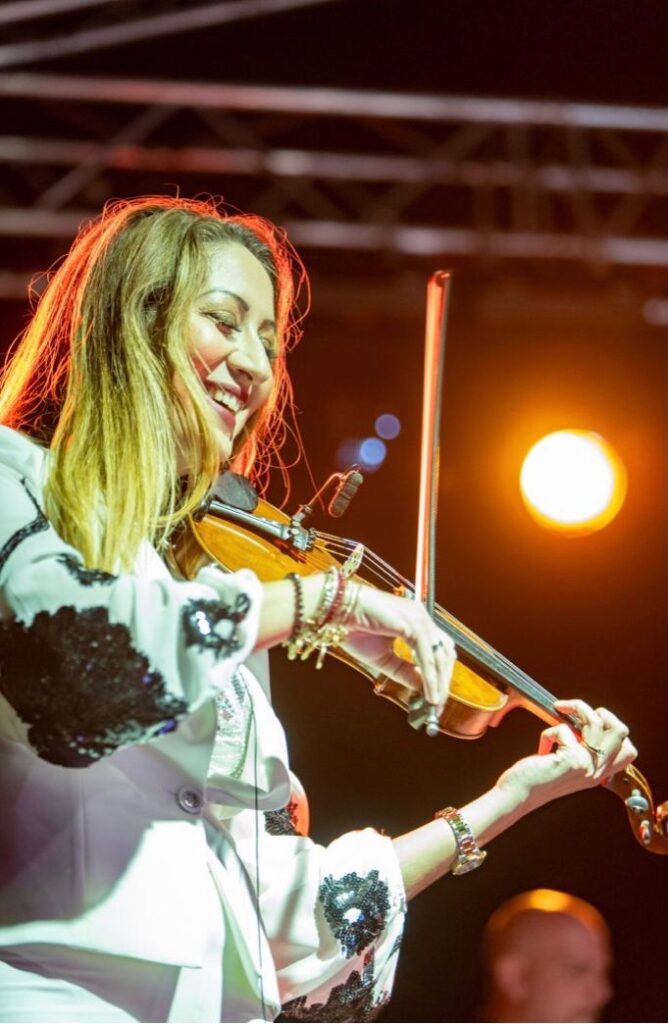
It was one of the hardest times in my life. Silvia was extremely strict—you couldn’t play through a single piece in her class during the first year. She would assign a piece, but after five notes, she would stop me. The entire lesson would be spent on just those first five notes. Sometimes, we never even reached the end of a piece before the exam—she would only hear it in full during the exam itself. Afterward, she would take us out for dinner and say: ‘I’m proud of you. From now on, I’ll be a little less strict.’ But I cried a lot that first year. She came to teach every two weeks from France and stayed for three or four days. After her lessons, I didn’t even want to open my violin case until Monday. Still, I don’t regret it. Graz was a great starting point, and it wasn’t too far from home.
At the age of 20, you finally started your long-awaited solo career. Was it while you were still in university?
I had already started playing in a symphony orchestra in Graz occasionally, and I enjoyed it because the sound of a symphony orchestra in concert is incredible. But I still wanted to be a soloist. Earlier, when I was 15, I started playing in Hungary as one of Edvin Marton’s background violinists, and from the age of 17, I was one of Zoltán Mága’s ‘angels’. I continued even while studying at the academy, but after one of the New Year’s concerts, I left. I had new opportunities that I wanted to take advantage of, so I started traveling, seeing the world, and earning money. I continued university for a while, but then I dropped out. I never finished, even though a few years ago I considered going back, but for now, it just doesn’t fit into my life. So, I’m not a violinist in the academic sense because I never graduated; I’m ‘only’ a violin virtuoso, but I fully accept that. Thank God, I’ve never needed a diploma for anything so far.
You believe that anything can be played on the violin. This idea led to the Miles of Styles concert and album, which aimed to inspire children. Why?
People unfamiliar with music often think of the violin as a strictly classical instrument, but I have always wanted to show that this is not necessarily the case. After moving to America, a friend of ours who teaches at an elementary school invited me to their career day. To be honest, I was nervous—I have a strong accent, which was even stronger back then, and besides, what could I possibly talk about with six-year-olds? That day was a personal revelation because I realized that I could actually explain to children that the violin can be used to play anything. I started talking to them about where they had traveled, and I told them that for me, the violin is my passport because it has taken me to 90 countries. I also explained to them that classical music is the foundation—it gives you the technique that allows you to play anything. Which, by the way, is not easy at all.
‘I could count on one hand how many classical violin soloists have existed in the past 100 years’
When I first went abroad from Graz to play salon music, my performance of Frank Sinatra’s Strangers in the Night or the theme from The Godfather was terrible. Even though these songs are technically much easier than the pieces I used to play, the result was awful because I was just playing the sheet music. It took time for me to learn how to play non-classical melodies. And this works both ways: a jazz pianist won’t easily play classical music, just as a classical musician won’t instantly become a jazz player. It’s not impossible—especially for very talented musicians—but it’s not as easy as many people think. In any case, I tried to show the kids that it was possible. I asked them what their favorite song was, and they were shocked when I played it for them. At the end, I invited them up—they held the bow while I held the violin, and we played the ABC Song together. Later, the school principal called me and asked if I wanted to teach there, because suddenly every child wanted to play the violin. I didn’t take the job, but now I teach three times a week at a music school. Teaching has never really interested me before, but since my son was born, I have felt much closer to children. Together, we reach musical levels I never thought possible.
After Carnegie Hall, it must be difficult to figure out the future. After fulfilling your grandfather’s dream, can you focus on achieving your own?
When the concert was over, the first thing I said to myself was: ‘I need to rest.’ I wanted to play with my son, cook, clean, and do everyday things without feeling guilty—because I hadn’t had the chance since he was two weeks old. So, for a while, I just took a break. But a few weeks later, I had a motivational talk scheduled at a university in Miami, Florida, and that changed my whole perspective. Suddenly, it was no longer about where I would perform next, but how I could inspire others. I created a presentation with photos of me playing all over the world. While I spoke, the images played behind me, and at the end, since there were musicians in the audience, I invited a pianist and a bassist onto the stage, and we played a song together. Many students were so excited that they skipped their next class just to talk to me afterward. After concerts, people often come up to me to say congratulations, but this was different. A business professor said: ‘I brought my class here, and at first, they didn’t understand why—they thought a violinist’s talk had nothing to do with them. But five minutes in, they got it.’ Many students later told me that they felt like they could achieve anything. I didn’t just tell them about my successes; I also told them how I was denied a visa. Seeing how much I was able to help these students made me think: I could take my concerts to an even higher level. Because it’s not just about a musical performance—it’s about a life journey, an experience from which many people can draw strength and inspiration.
Why didn’t you get the visa?
I had known for years that I needed to move here to fulfill my dream. It simply wasn’t possible from home. In 2017, I met my husband, who is of Croatian descent and had been living in America for 20 years. We were deeply in love and envisioned our future together, but I didn’t want to get a green card through him—I wanted to handle it myself. I visited him often on a tourist visa while preparing for an artist visa, which required an enormous amount of money and paperwork. I gathered 600 pages of documents, which I submitted two years later, in 2020. I was denied the visa because I didn’t have a Grammy award. Now I understand why it had to be that way. Looking back, I see things differently, but at that moment, it felt like the biggest failure of my life. I had spent two years preparing, I had the best lawyer, and I used up all my savings on the visa application. Soon after, the COVID-19 pandemic broke out, and everything shut down. We knew that if I went back home, I wouldn’t be able to return—and who knew when we would see each other again? So, I got married to ensure we could stay together. The artist visa simply wasn’t my path. I wanted to fulfill my grandfather’s dream in America, but since it was a family legacy, I couldn’t achieve it through just paperwork—I had to build a family in America. In 2021, I received my green card. Until then, I focused on building connections. After that, I took every performance opportunity to make a name for myself. Now, I only accept engagements above a certain level, but in the beginning, I played in all kinds of places, mostly corporate events and private parties. Over time, more and more people got to know me, and since then, I’ve played at events like the Miami Boat Show opening.
Speaking of helping others, do you also do charity work?
My first major charity concert was in Hungary a few years ago, and it was a huge success. Later, I organized another charity event called ‘The Christmas Tree of Changes’. It wasn’t a concert, though I had originally planned it as one, but the main goal was to help children during Christmas, and it worked. We raised funds and delivered Christmas gifts to many children. I’m currently planning a similar initiative here in America, where the proceeds would go toward Christmas presents for disadvantaged children who otherwise wouldn’t receive any. I’ve already reached out to a few people, but the details aren’t public yet. I really hope that wealthier Hungarians will support me in this effort. It’s very important to me that in every performance, I mention that I’m Hungarian.
What other plans do you have?
Right now, I’m working on my new album, which—if all goes well—will be completed this year. This will be an album of entirely original compositions. Until now, I’ve had only one original piece so far—Redemption—which even had a music video shot at the ruins of Bács (Bač) Fortress in Vojvodina (Serbia). The style of the album will be similar: a fusion of electronic dance music, pop, film music, Disney influences, and, of course, classical music. This is special because, as far as I know, there are no serious violinists in the world today who compose their own pieces—except for Lindsey Stirling on violin and Balázs Havasi on piano. I’m very excited because this is a huge milestone in my life.
Bernadett Nyari – Redemption (Live at Lisinski, Zagreb)
Bernadett Nyari – Violin Virtuoso Redemption Live at Vatroslav Lisinski Concert Hall Zagreb, Croatia April 2nd, 2024 Opening Act for @thefrajle YouTube Channel: @BernadettOfficial IG: @bernadettviolin FB: @bernadettviolin Web: https://www.bernadettofficial.com Contact: office@bernadettofficial.com Music: Norbert Csicsák Video production company: Classica Nova LLC www.classicanova.rs Creative producer: Aleksandra Svonja Editor: Aleksandar Korom Camera: Aleksandar Korom Rastko Zekic Ana Banjac Hair: Norbert Horvat Bernadett: A Musical Journey From the grand stages of Carnegie Hall to the far reaches of 90 countries, Bernadett has captivated audiences with her sensational talent and awe-inspiring performances.
You live in Florida, but you still feel very connected to Hungary and Croatia.
After a concert in Serbia, a TV reporter said that I live a dual life, and I corrected him: I actually live a triple life. We spend every summer in Croatia and Hungary, while the rest of the year is in Florida, which has become our true home since our son was born. When we vacation in Croatia, I’m happy to take on performances there and in Serbia. When I go back to Hungary, I accept invitations to perform there as well. And when I’m here in Florida, I do what we’ve been talking about. I’m Hungarian, and I always will be. Hungary will always be my homeland, no matter what happens in the country or where I live, but I also have to feel at home in Croatia. However, my son may not necessarily see it that way, because he has three homes, citizenships, and passports. However, I really want him to feel at home in all three countries. So, it’s not just about my identity but also about my family, and I believe it’s best if I feel at home in all three places.
How does this ‘triple life’ affect your music? Do you have to tailor your performances to Hungarian, Serbian, Croatian, or American audiences? Or can you just be Bernadett Nyári everywhere?
That’s a really good question! When I was playing cover songs, I often adapted my concerts to the location. For example, on 20 August, St. Stephen’s Day celebration, I closed the night with a solo concert at Vigadó, Budapest, and of course, I chose pieces that I knew the local audience would love. But I also knew that Budapest is full of tourists in summer, so I spoke to them in two languages. In Serbia, I opened my concert with Brahms’ Hungarian Dances, which immediately made it clear that I was Hungarian. In Croatia, they also love csárdás, but they are a bit more modern—so there, I open with my own music. However, once my new album is out, I want to do only album launch concerts. We’re creating music that is meant to be universally appealing; something that anyone between 25 and 105—so that my grandmother can be included—can enjoy. Of course, that doesn’t mean I won’t play a famous cover song from time to time, but my concerts will primarily focus on my own music. Norbert Csicsák, my producer, is handling the arrangements and composition. We’ve been working together for so long that he knows exactly what my style is. When my first original song came out, people who know me well said: ‘This sounds just like you.’ I really hope the entire album will feel the same way.
Read more Diaspora interviews:

